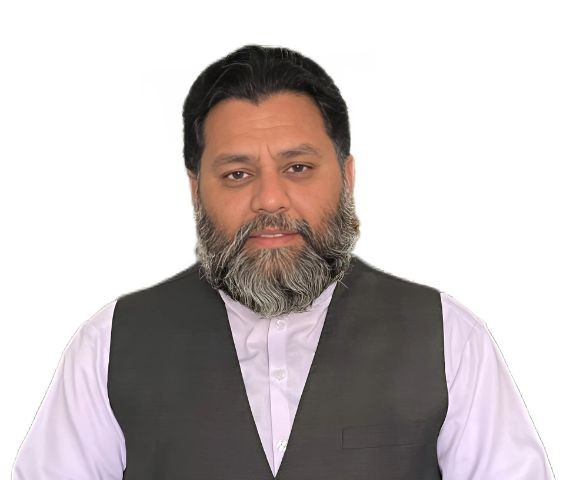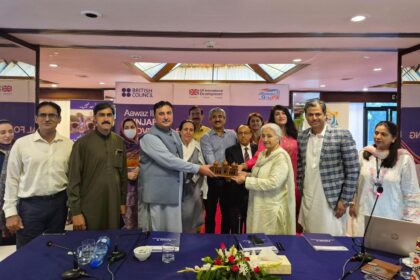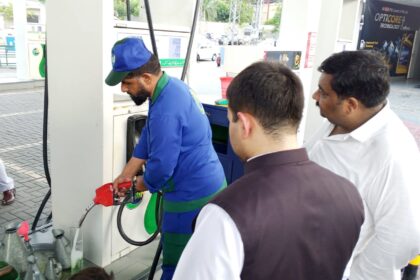Protest! Blocked Roads, Suffering Students, and Disrupted Education
By: Zaheer Ahmed Awan
In today’s fast-changing world, where the globe has turned into a small village and news spreads within seconds, protests in developed nations are peaceful, well-organized, and time-bound. They start and end as planned, with minimal disturbance to public life. Unfortunately, in Pakistan, protests have become synonymous with disruption, chaos, and public suffering. Every demonstration, regardless of its cause, turns into an ordeal for ordinary citizens.
Even before a protest begins, the government starts large-scale “security measures.” Political workers and leaders are arrested or detained, their offices and homes raided, and most importantly, major highways and city roads are sealed with shipping containers. In Islamabad and Rawalpindi, it has almost become a norm containers on every main road, police barricades everywhere, and mobile and internet services suspended.
As communication networks go down, schools, colleges, and universities fail to inform students and parents about closures or safety concerns. Examinations are delayed without notice. Many children leave for school in the morning but get stuck for hours on their way back due to sudden road blockages. Students, teachers, and employees suffer the most in these situations.
When public transport is suspended, Metro buses, intercity and intracity bus services, private vans, rickshaws, and taxis all stop operating. Life comes to a standstill, and the economy loses billions of rupees each day. Daily wagers, small vendors, and business owners face irreparable losses.
In emergencies, ambulances, Rescue 1122, fire brigades, and sanitation vehicles are unable to move. Patients die on their way to hospitals because ambulances cannot find open routes. Fire trucks fail to reach burning buildings. Garbage collection vehicles remain parked, leaving heaps of waste in neighborhoods. Water tankers, gas and electricity maintenance teams, and market deliveries all stop functioning. Such a situation resembles a national crisis rather than a civil protest.
The Constitutional Right to Protest
According to the Constitution of Pakistan, every citizen has the right to peaceful assembly and freedom of expression.
- Article 16 guarantees the right to assemble peacefully without arms.
- Article 17 grants the right to form associations and political parties.
- Article 19 ensures freedom of speech and expression.
These are fundamental democratic rights — but they come with responsibilities. A protest must remain peaceful and should not infringe upon the rights of others. Unfortunately, in Pakistan, these same constitutional rights are often suppressed under Section 144 and 16 MPO (Maintenance of Public Order), which lead to arrests, detentions, and complete shutdowns of major cities.
Impact on Education
Students are among the most affected groups during such protests. Examinations are postponed, classes canceled, and attendance disrupted. Parents are left anxious, uncertain about their children’s safety. The education system, already facing numerous challenges, is pushed further into crisis. Repeated interruptions in academic schedules harm not only individual students but the nation’s intellectual growth.
Learning from the Developed World
Many developed countries have successfully balanced the right to protest with public convenience. - In the United Kingdom, designated areas are allocated for protests, and there is continuous communication between police and protest organizers.
- In France, specific routes and timings for demonstrations are set in advance.
- In Germany, protests without official permits are not allowed to ensure smooth public movement.
- In Canada and Norway, “emergency green lanes” remain open during protests to guarantee that ambulances and rescue services are never blocked.
These examples show that with planning, discipline, and coordination, peaceful protests can coexist with normal public life. Pakistan, too, can follow similar models to avoid chaos and ensure that protests serve their democratic purpose without creating nationwide disruption.
Reform and Responsibility
The government must take a proactive approach.
- Develop clear laws and procedures for holding protests in coordination with political parties.
- Create an early warning and notification system in collaboration with the Education Department to inform parents and students in advance.
- Ensure that emergency lanes remain open at all times.
- Use media platforms to inform the public about alternative routes and current traffic updates.
- Political leadership must understand that public inconvenience leads to resentment, not support.
Government’s Poor Planning Turns Peace into Violence
Poor planning and weak crisis management often turn peaceful demonstrations into violent clashes. When the government uses force tear gas, baton charges, mass arrests, and FIRs the reaction is equally harsh. In retaliation, protesters engage in vandalism, property damage, and even attacks on public buildings. Such confrontations ultimately hurt the very citizens who are already suffering.
The government must act with restraint and patience, adopting an effective strategy that ensures dialogue and understanding. Instead of confrontation, there should be cooperation. Political parties should also train their workers to behave responsibly, follow the law, and avoid violence under all circumstances.
This country belongs to all of us, and it is our shared duty to protect it, not destroy it. Demonstrations should strengthen democracy not paralyze the nation.
The Way Forward
Protests are a vital part of any democracy, but they must never cripple an entire city. The government, judiciary, security institutions, and political parties must work together to establish a system where the public’s right to protest is protected, while the daily life of citizens continues smoothly.
Every citizen deserves both the right to raise their voice and the right to live without unnecessary disruption. The solution lies not in closing roads but in opening channels of communication.
Peaceful protest is the true essence of democracy. It builds nations, while violence and road blockages destroy them. Pakistan must now choose the path of reason, tolerance, and cooperation — for a democratic future where every citizen’s voice is heard, and every life continues without fear.











